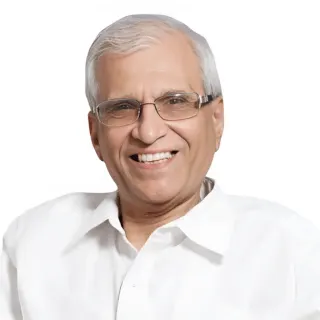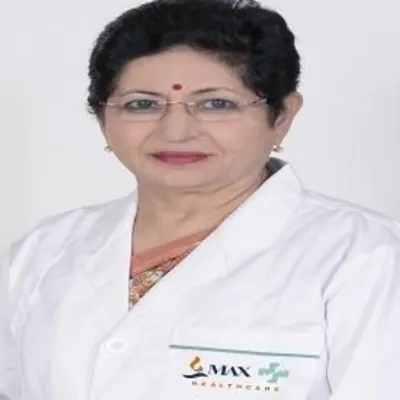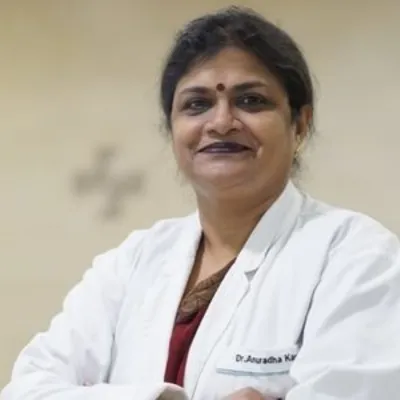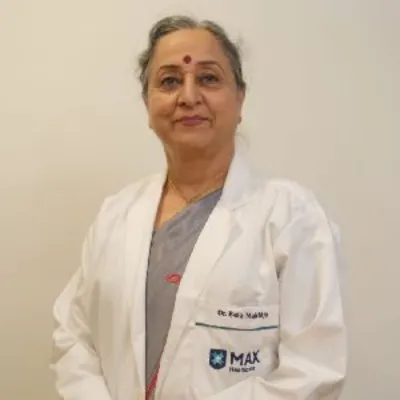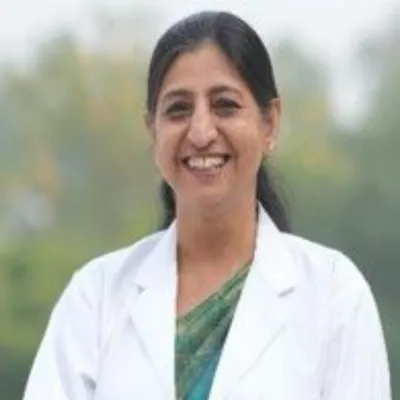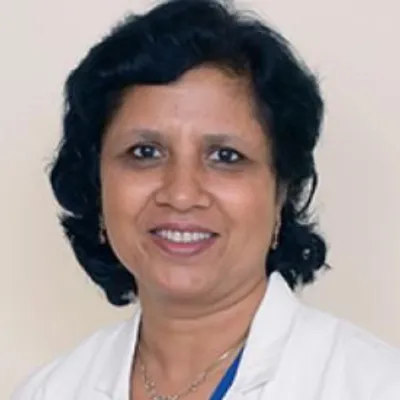Best Liver Transplant Surgeons in Artemis Hospital Gurgaon
 24 December,2025
Read More
24 December,2025
Read More
Enquire now in case of any assistance needed
 29 April,2024
29 April,2024
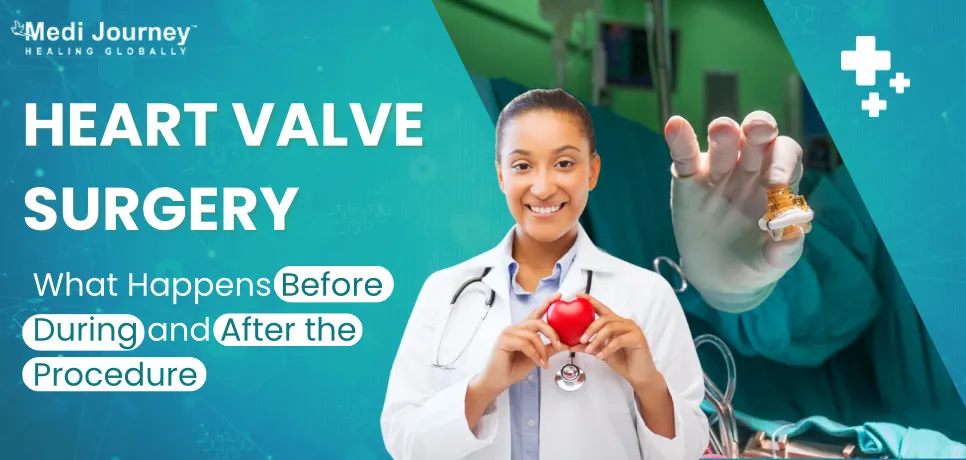
Heart valve surgery, whether repair or replacement, can be a life-saving surgical intervention for patients suffering from malfunctioning valves. Each year, lakhs of valve replacement surgeries are performed worldwide. The procedure helps alleviate chest pain, dizziness, palpitations, and breathing difficulties.
Heart valve surgeries were scary back in the days when the success rates were low. But that’s not the case anymore. Recent developments in minimally invasive and robotic surgeries have significantly improved the procedure for repairing or replacing heart valves.
In this blog, you will learn about various heart valve surgeries and how they are done.
Fill up the form and get assured assitance within 24 hrs!
The heart is a pumping machine that pumps blood throughout the body. It has four chambers: two atria (upper chambers) and two ventricles (lower chambers). These chambers have different valves to keep blood flowing and prevent backflow.
Heart valve surgeries are performed to replace or repair a valve that is not working correctly because of valvular heart disease. The procedure aims to correct the valve disorder, reduce or eliminate symptoms, increase lifespan, and improve the quality of life.
The cardiologist will recommend heart wall surgery if you have valvular diseases (conditions affecting any of the four valves in the heart). The two most common heart valve diseases are –
Both conditions put an extra burden on the heart and affect its efficiency in pumping blood. Hence, these abnormalities must be corrected with valve repair or replacement.
Heart valve replacement helps in alleviating symptoms such as –
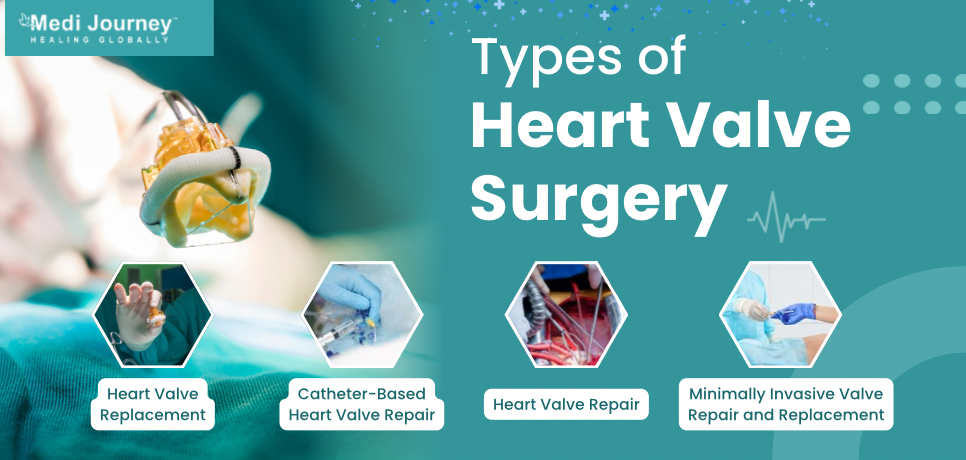
Heart valve surgery can be performed using traditional open heart surgery or newer minimally invasive techniques. The type of surgery selected depends on your age, general well-being, and the type and severity of the valve disease.
Heart valve repair involves surgical procedures that typically address issues with the mitral or tricuspid valves. The surgical interventions depend on the nature of the problem.
In certain valve repair surgeries, the surgeon can use a thin and flexible tube catheter to access the heart valve through a blood vessel in the arm or groin. This kind of surgery doesn't require any incisions in the chest or stopping the heart.
If the heart valve is severely damaged and cannot be repaired, the surgeon may need to replace it with a new mechanical or biological valve. The surgeon's choice of valve often depends on the patient's age.
You will be admitted to the hospital one day before the valve repair/replacement surgery. You will change into the hospital gown and be taken to the operating room by paramedical staff. The heart valve surgery will have several steps, which are as follows –
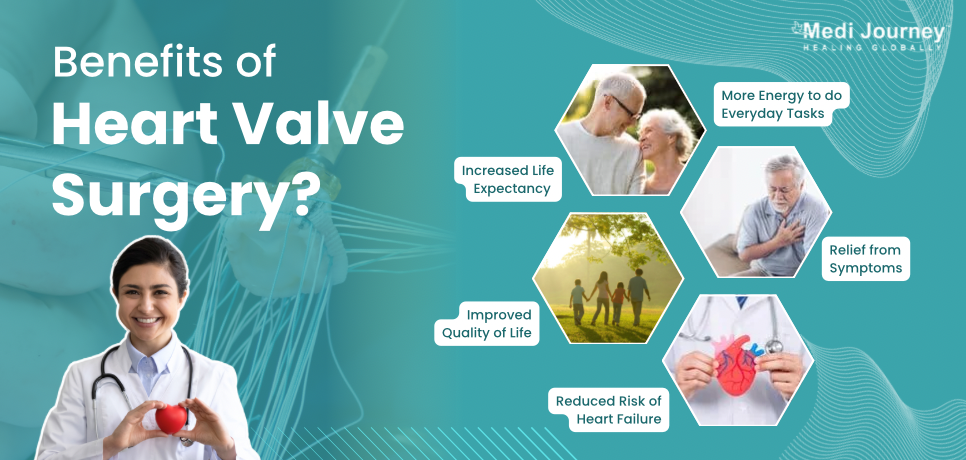
Minor heart valve disorders are usually treated with medications as the first line of treatment. However, when medications fail to provide relief from the symptoms, a valve repair or replacement surgery is advised. For most people, heart valve surgery helps in the following ways –
Just like any other surgery, heart valve surgeries are also not risk-free. However, procedure-related risks are much lower than the risks of leaving the valvular disease untreated.
The overall rate of complications ranges from 2 to 10%. It depends on various factors such as age, current general health, and the severity of valve disease. Common risks include –
Heart valve surgery is a major cardiac procedure that can significantly improve the quality of life of patients having a malfunctioning heart valve. Modern advancements in minimally invasive techniques have made the procedure safer and faster. If you're experiencing symptoms like shortness of breath, chest pain, or fatigue, consult a doctor to discuss whether valve repair or replacement surgery might be right for you.
Fill up the form and get assured assitance within 24 hrs!
Doctor of Pharmacy
Dr. Deepanshu Siwach is a skilled clinical pharmacist with a Doctor of Pharmacy degree.?He has 4+?years of experience and has worked with thousands of patients. He has been associated with some of the top hospitals, such as Artemis Gurgaon.
Chairman
Cardiac Electrophysiologist, Interventional Cardiologist
Dr. T.S. Kler, a Padma Bhushan awardee and the Chairman of Fortis Heart & Vascular Institute, transformed the field of electrophysiology in India through over 35,000 angioplasties and innovative device implants. After earning the MRCP (UK) in 1989, he launched India's first electrophysiology lab at Escorts Heart Institute in 1993, where he conducted the country's first ICD implant in 1995 and the first CRT-D implant in 2000. His introduction of HIS bundle pacing in 2015 resulted in a 30% improvement in cardiac synchronization outcomes. He is one of the leading doctors in Gurgaon, India, and he is currently focused on integrating AI-driven models for arrhythmia prediction, analyzing over 10,000 ECGs with a machine learning algorithm....
Senior Consultant
Medical Oncologist
Nanavati Super Specialty Hospital, Mumbai
WhatsApp UsSenior Director
Gynecologist and Obstetrician, IVF Specialist
Max Super Speciality Hospital, Shalimar Bagh, New Delhi
WhatsApp UsSenior Director
Gynecologist and Obstetrician, IVF Specialist
Max Smart Super Speciality Hospital, Saket, New Delhi
WhatsApp UsSenior Director
Gynecologist and Obstetrician
Max Smart Super Speciality Hospital, Saket, New Delhi
WhatsApp UsSenior Director
Gynecologist and Obstetrician
Max Smart Super Speciality Hospital, Saket, New Delhi
WhatsApp UsSenior Director
Gynecologist and Obstetrician
Max Smart Super Speciality Hospital, Saket, New Delhi
WhatsApp UsThe Art of Effective Communication
 24 December,2025
Read More
24 December,2025
Read More
 23 December,2025
Read More
23 December,2025
Read More
 17 December,2025
Read More
17 December,2025
Read More
 16 December,2025
Read More
16 December,2025
Read More
 10 December,2025
Read More
10 December,2025
Read More
 09 December,2025
Read More
09 December,2025
Read More
Trusted by Patients
"I am Asim from Bangladesh and was looking for treatment in India for neuro. I visited many websites to get the complete information regarding the treatment but I was not satisfied as I was getting confused. In the meanwhile, one of my friends suggested I seek help from Medi Journey as he experienced his medical journey very smoothly and was satisfied with it. They have filtered the top 10 doctors as per experience, the success rate of surgery & profile, so it helps us to choose the best treatment in India. "
"For my knee surgery, Medi Journey guided me to BLK Hospital where I received exceptional care. The team's support and the expertise at BLK Hospital exceeded my expectations. Thank you Medi Journey for making my medical journey stress-free. "
"I came from Iraq for my granddaughter's eye surgery in India facilitated by Medi Journey, due to critical cases they advised us to get a second opinion from the different hospitals before going to surgery. Finally, we went to Fortis Escort Hospital, which helped us to get more confidence for diagnosis. Fortis Escort Hospital has the best eye surgeon team with the latest instruments. Thanks to all team members for providing a high-quality treatment in India at an affordable cost. "
"I came for my hair transplant in India, before coming I was so confused about choosing the best clinic and surgeon for me. But thanks to God one of my friends had a hair transplant in India through Medi Journey. He recommended me to go with them. I am completely happy with my experience with them. They were always very fast in their responses to me. the success rate of my hair transplant surgery is 100%."
"Artemis Hospital, suggested by Medi Journey, turned out to be a great choice for my treatment. The personalized assistance and medical care were exceptional. I'm grateful to Medi Journey for guiding me to a hospital that perfectly matched my needs. Highly recommended! "
"I came from Afghanistan for my treatment in India at Jaypee Hospital, Noida. I had a fantastic experience with Medi Journey. Kudos to them for their incredible support during my medical journey. They not only took care of all the logistics but also connected me with a fantastic healthcare team. Efficient, caring, and highly recommended for a hassle-free medical tourism experience."
"I am Adam from Kano, Nigeria, one of my friends from Nigeria was facilitated by Medi Journey, and he recommended us to go with them. I sent my all reports to them and within 48 hours they reverted with 4 options from different hospitals. They helped me to get a Visa letter from the hospital, arrange pick-up from the airport, and book a hotel for me. Their team is very honest and throughout our stay in India they are with us they are caring for us like his family members. BLK Hospital is the best hospital in India with a top surgical oncologist surgeon team, a very advanced OT, and a Radiotherapy department. I wish more success to Medi Journey. "
"Great experience at the Max Hospital for my spine surgery and was successfully done. I thank my neurosurgeon and his entire team. I recommended all of my country's people to Medi Journey for treatment in India, they choose the best hospital, the best doctors, and the best cost for patients."
"I came to India from Dhaka, Bangladesh for my father-in-law's cardiac surgery at Fortis Hospital. I was confused about choosing the best surgeon for him before coming, but their team helped me to choose the best hospital and best cardiac surgeon in India with very good cost and 100% success rate of surgery. I am very happy with the services, really they make my journey so comfortable that make me feel at home. Thanks again and I like people to choose "Medi Journey" as your travel guide. "
"I am Mohammad from Bangladesh came to India for my general health checkup. Medi Journey offers me the complete package including Pick-up from the airport, hotel services, and 24-hour assistance. They guide you to choose the best hospital in India, the best cost of treatment with top-most doctors and give you complete information about hotel booking, and pick-up from the airport before coming to India They have the best team to help. Always choose Medi Journey for your treatment in India."
